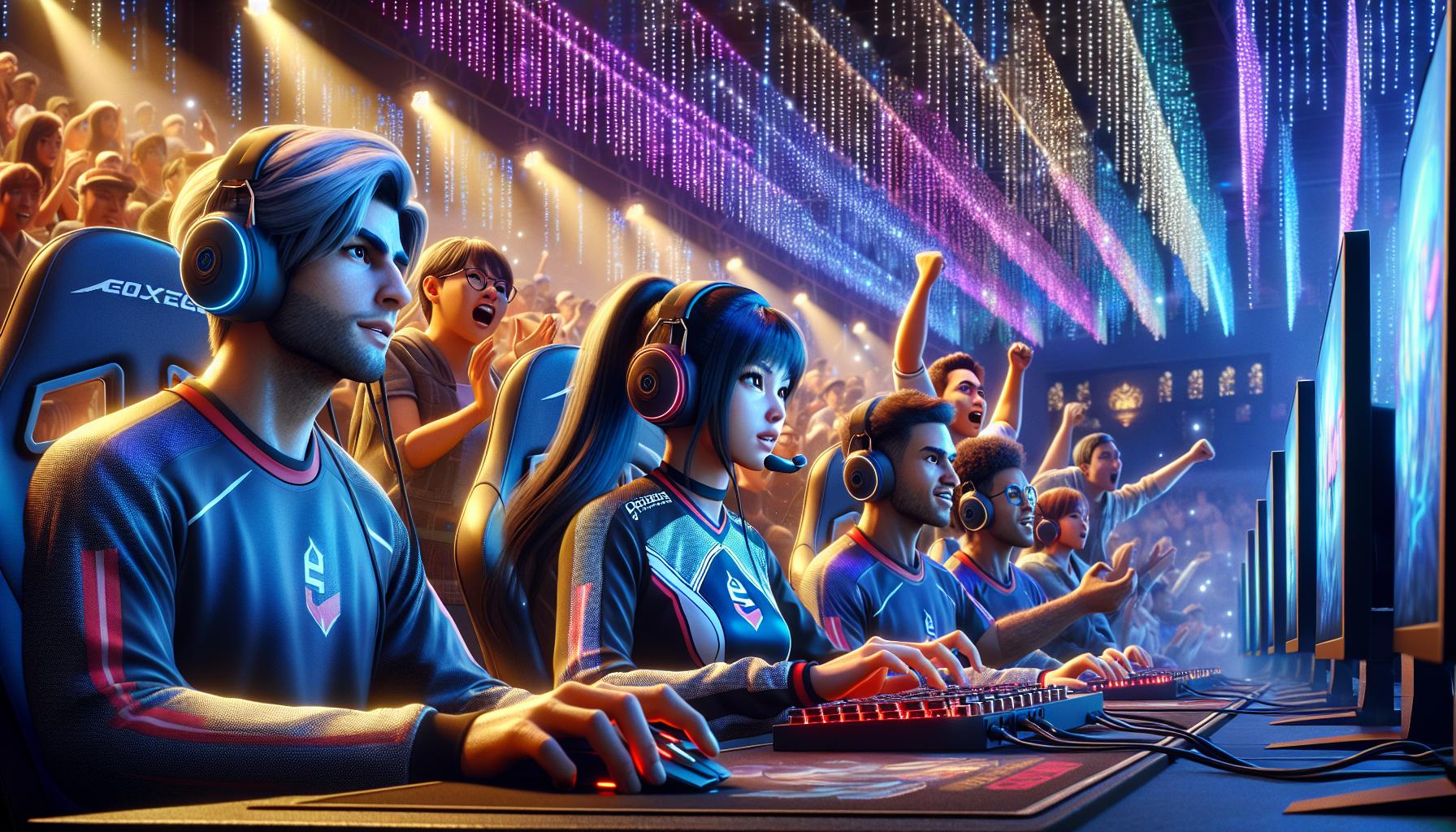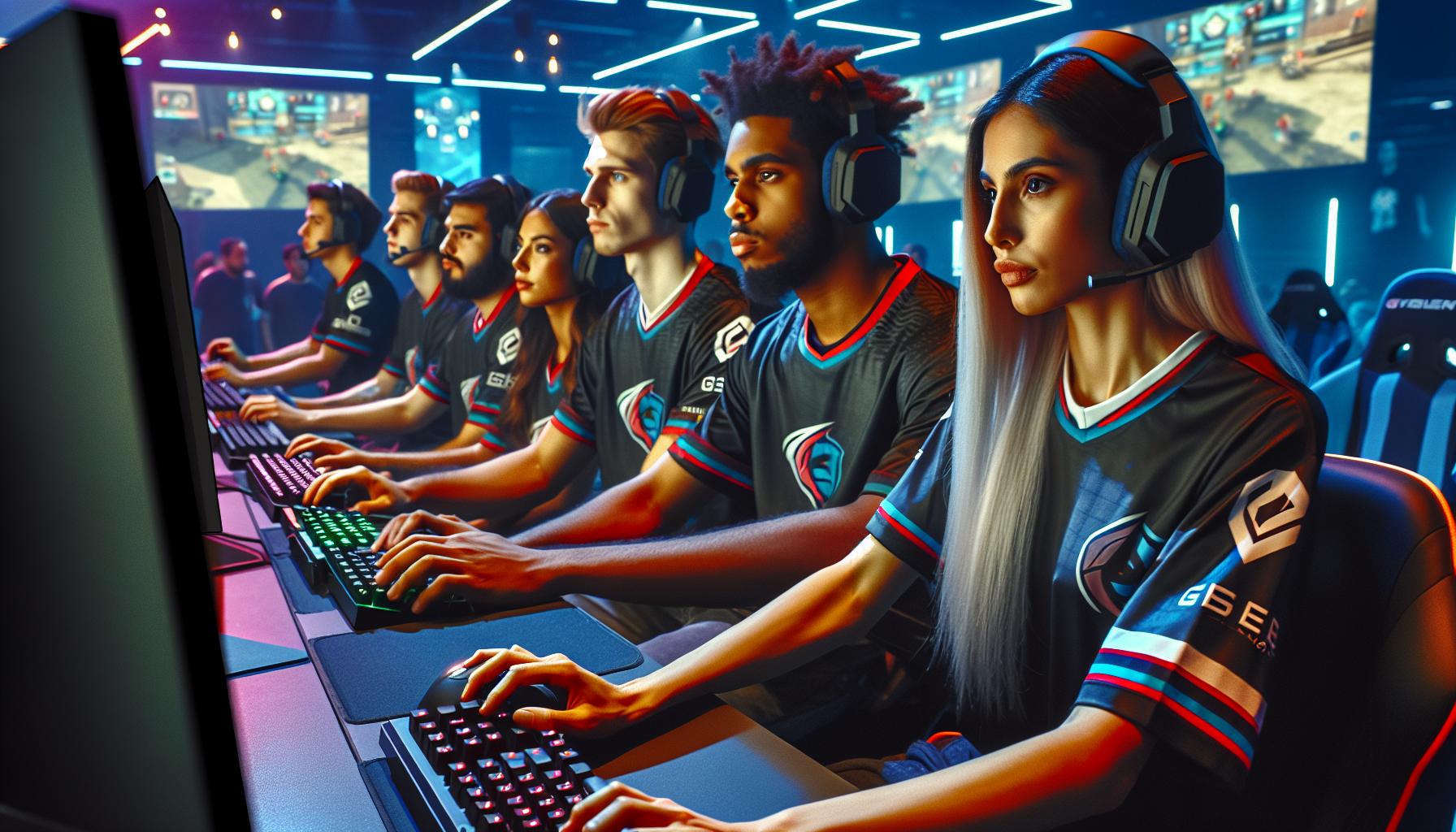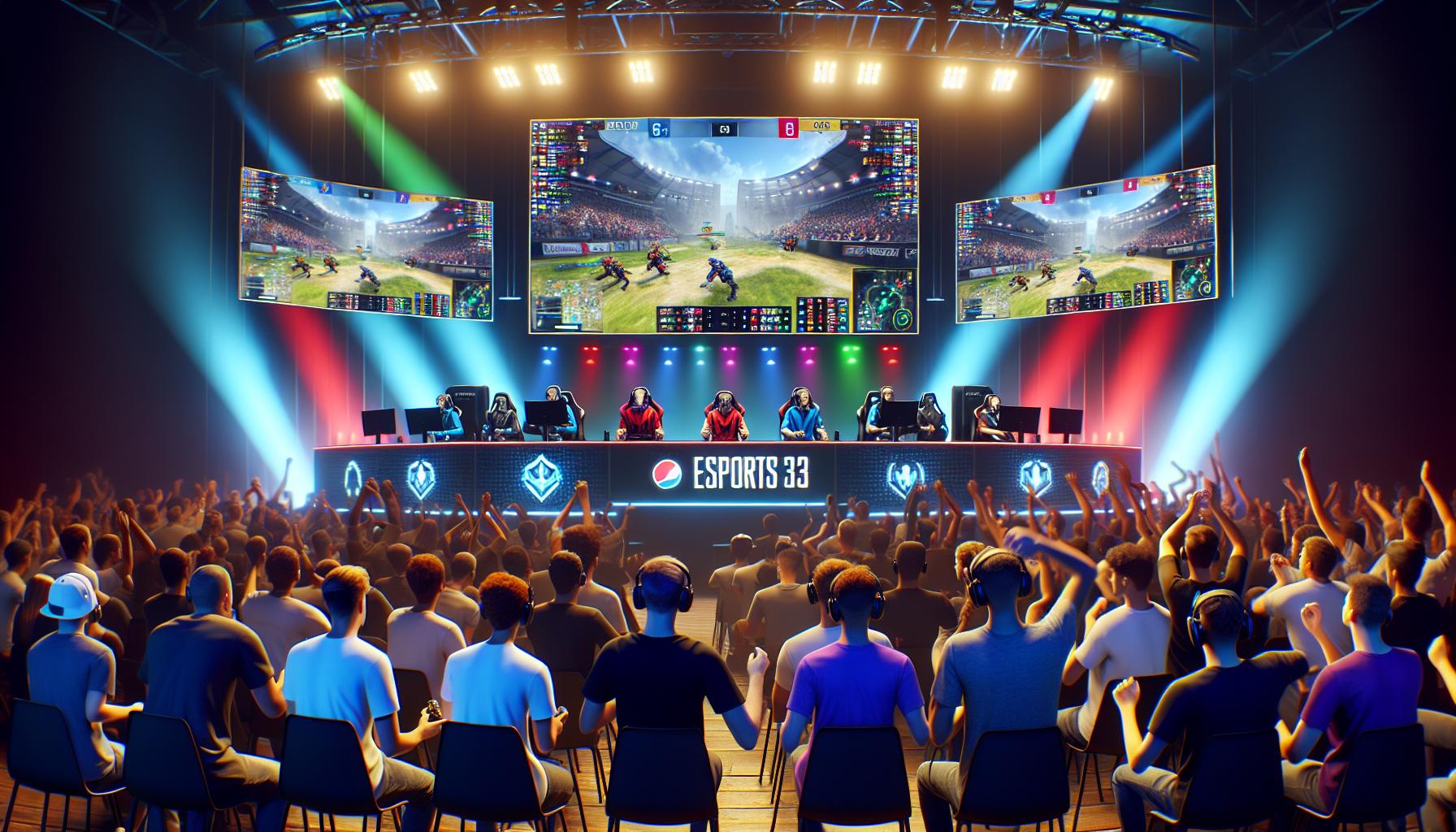Key Takeaways
- Rapid Growth: Esports has evolved from a niche hobby into a multi-billion dollar industry, with over $1 billion in revenue generated as of 2020.
- Player Earnings: Top esports players can earn significant incomes, exemplified by Johan “N0tail” Sundstein, who has amassed over $7 million in competitive winnings.
- Massive Viewership: Esports viewership reached 495 million globally by 2020, surpassing traditional sports in popularity among younger audiences.
- Record Prize Pools: Major tournaments like The International for Dota 2 demonstrated the financial potential of esports, with a record prize pool exceeding $40 million in 2021.
- Inclusive Community: The rise of female players and specialized tournaments promotes diversity and inclusivity within the esports community.
- Cultural Influence: Esports is significantly impacting mainstream culture, reflected by collaborations with celebrities and major brands, and integration into traditional sports organizations.
Esports has rapidly transformed from a niche hobby into a global phenomenon, captivating millions of fans and players alike. With massive tournaments, professional teams, and dedicated streaming platforms, it’s no wonder that esports is now a multi-billion dollar industry. But beyond the competitive gameplay and thrilling matches, there’s a treasure trove of fun facts that highlight the unique culture and history of this exciting world.
From record-breaking prize pools to the rise of celebrity gamers, the evolution of esports is nothing short of fascinating. As the lines between traditional sports and gaming continue to blur, understanding the quirks and milestones of esports can deepen appreciation for this vibrant community. Dive into some surprising tidbits that showcase the impact and growth of esports, revealing why it’s more than just a game.
Fun Facts About Esports
- Revenue Generation: Esports generated over $1 billion in revenue in 2020, driven largely by sponsorships, advertising, and media rights.
- Player Earnings: Gamers can earn significant incomes, with top players like Johan “N0tail” Sundstein earning over $7 million from competitive play alone.
- Audience Size: Esports viewership reached 495 million globally in 2020, surpassing traditional sports in several regions, particularly among younger demographics.
- Major Events: The International, an annual Dota 2 tournament, featured a record prize pool of over $40 million in 2021, demonstrating esports’ financial depth.
- Top Games: Popular titles in esports include League of Legends, Counter-Strike: Global Offensive, and Fortnite, each hosting numerous tournaments throughout the year.
- Women in Esports: The presence of female players is increasing, with organizations like ESL and Riot Games implementing female-only tournaments to promote inclusivity.
- Educational Opportunities: Several universities now offer esports scholarships and degrees, recognizing the industry’s growth and the skills required for success.
- Streaming Platforms: Platforms like Twitch and YouTube Gaming attracted millions of daily active users, providing a primary source of entertainment and interaction for esports fans.
- Cultural Impact: Esports has influenced mainstream culture, with collaborations between game developers and celebrities, including Drake and Marshmello, enhancing visibility.
- Global Reach: Esports tournaments are hosted worldwide, from North America to Asia and Europe, attracting international teams and fans and fostering a global community.
The Evolution of Esports

Esports has transformed dramatically over the decades, evolving into a mainstream phenomenon. Understanding its journey from humble beginnings to a multi-billion dollar industry highlights its significance in today’s digital landscape.
Early Beginnings
Esports traces its origins back to the early 1970s, when the first known video game competition took place at Stanford University in 1972. This event featured the game “Spacewar!” and attracted around 24 participants. By the 1980s, arcade gaming contests gained traction, with tournaments like the 1980 Space Invaders Championship drawing thousands of players and spectators. The first recorded esports league, the Major League Gaming, emerged in 2002, further solidifying competitive gaming’s foundation. These early competitions set the stage for the organized and lucrative esports events that followed.
Growth in Popularity
The 2010s marked a pivotal era for esports, showcasing exponential growth in audience and market size. Esports viewership surged, reaching 495 million globally by 2020. Streaming platforms, particularly Twitch, elevated the accessibility of esports content, allowing fans to engage with their favorite players and teams in real time. Major tournaments, such as The International and the League of Legends World Championship, featured multimillion-dollar prize pools, attracting extensive media coverage. Top players not only gained fame but also significant earnings, with some like Johan “N0tail” Sundstein amassing over $7 million in career winnings. The crossover appeal of esports with traditional sports, celebrities, and mainstream media has further fueled its popularity, solidifying its position in global entertainment culture.
The Impact of Esports on Culture

Esports significantly influences modern culture, shaping communities and gaining mainstream attention. These transformations highlight the growing importance of esports in everyday life.
Gaming Communities
Gaming communities form the backbone of the esports ecosystem. Players frequently connect through online platforms, fostering friendships and collaborations. Events like tournaments, streaming sessions, and fan meet-ups facilitate engagement and bonding among players. Organizations such as Team Liquid and FaZe Clan actively promote community involvement by hosting fan events, creating merchandise, and engaging with audiences on social media. Communities also emphasize inclusivity, encouraging participation from diverse demographics, including marginalized groups. This supportive environment contributes to the overall growth of esports culture.
Mainstream Acceptance
Mainstream acceptance of esports continues to rise, marking a significant cultural shift. Major brands, including Coca-Cola, Intel, and Nike, invest in esports sponsorships to tap into enthusiastic audiences. Celebrity endorsements, such as those from Drake and OBJ, further validate esports as a legitimate entertainment avenue. Traditional sports teams, like the NBA’s Golden State Warriors, now include esports teams within their organizations, bridging gaps between conventional and digital sports. This acceptance reflects changing perceptions of gaming from a hobby to a recognized form of entertainment, attracting wider audiences and encouraging broadcasts on platforms like ESPN and NBC Sports.
Notable Esports Tournaments

Esports tournaments showcase the thrilling competitive spirit and skill of players across various games. These events not only attract massive audiences but also feature impressive prize pools, enhancing the excitement and prestige of professional gaming.
Major Competitions
- The International: Annual Dota 2 tournament known for its record-breaking prize pools, reaching over $40 million in 2021.
- League of Legends World Championship: Premier tournament featuring top teams from around the world, with a prize pool exceeding $2 million in 2021.
- Counter-Strike: Global Offensive Major Championships: Top-tier events celebrating the best teams, with prize pools often exceeding $1 million per tournament.
- Fortnite World Cup: A grand event that attracted 19 million viewers in its inaugural year, with a total prize pool of $30 million in 2019.
- Overwatch League Grand Finals: The culmination of the season, featuring top teams, with prize pools typically around $1.5 million.
| Tournament | Year | Prize Pool |
|---|---|---|
| The International (Dota 2) | 2021 | $40 million |
| League of Legends World Championship | 2021 | $2 million |
| Fortnite World Cup | 2019 | $30 million |
| Counter-Strike Major Championships | Varies | Over $1 million |
| Overwatch League Grand Finals | Varies | ~$1.5 million |
Prize pools in esports tournaments continue to grow, reflecting the increasing investment and interest in competitive gaming. Not only do these figures highlight the economic potential of esports, but they also attract elite talent aiming for a share of the lucrative rewards.
Unique Aspects of Esports
Esports presents distinctive facets that contribute to its appeal and growth. Below are crucial elements that define the esports landscape.
Professional Players
Professional players serve as the face of esports, showcasing extraordinary skills in competition. They often endure rigorous training schedules ranging from 8 to 12 hours daily to maintain peak performance. Success brings substantial earnings, with top-tier players like Johan “N0tail” Sundstein earning over $7 million. Teams invest heavily in talent, offering salaries that can exceed six figures annually. Furthermore, these players engage with fans through live streams, social media, and events, enhancing their visibility and brand value.
Viewer Engagement
Viewer engagement characterizes the esports experience, with fans experiencing the excitement through various interactive platforms. Events attract millions of viewers, with the League of Legends World Championship garnering over 100 million concurrent viewers in 2020. Streaming services, such as Twitch and YouTube Gaming, provide a direct connection between gamers and audiences, enabling real-time interaction. Viewers participate through chat, polls, and live commentary, significantly enhancing their experience. Moreover, community events and tournaments foster viewer loyalty, encouraging engagement beyond passive watching.
Entertainment Landscape
Esports has transformed into a dynamic and influential force in the entertainment landscape. With its impressive growth and the passionate communities that surround it, esports continues to captivate audiences worldwide. The blend of competition and camaraderie creates a unique environment that resonates with fans of all ages.
As the industry evolves, it’s clear that esports is more than just a trend. It’s a cultural phenomenon that bridges gaps between traditional sports and digital entertainment. With increasing support from brands and the rise of professional players, the future of esports looks brighter than ever. Embracing this vibrant ecosystem allows everyone to appreciate the depth and excitement that esports brings to the global stage.